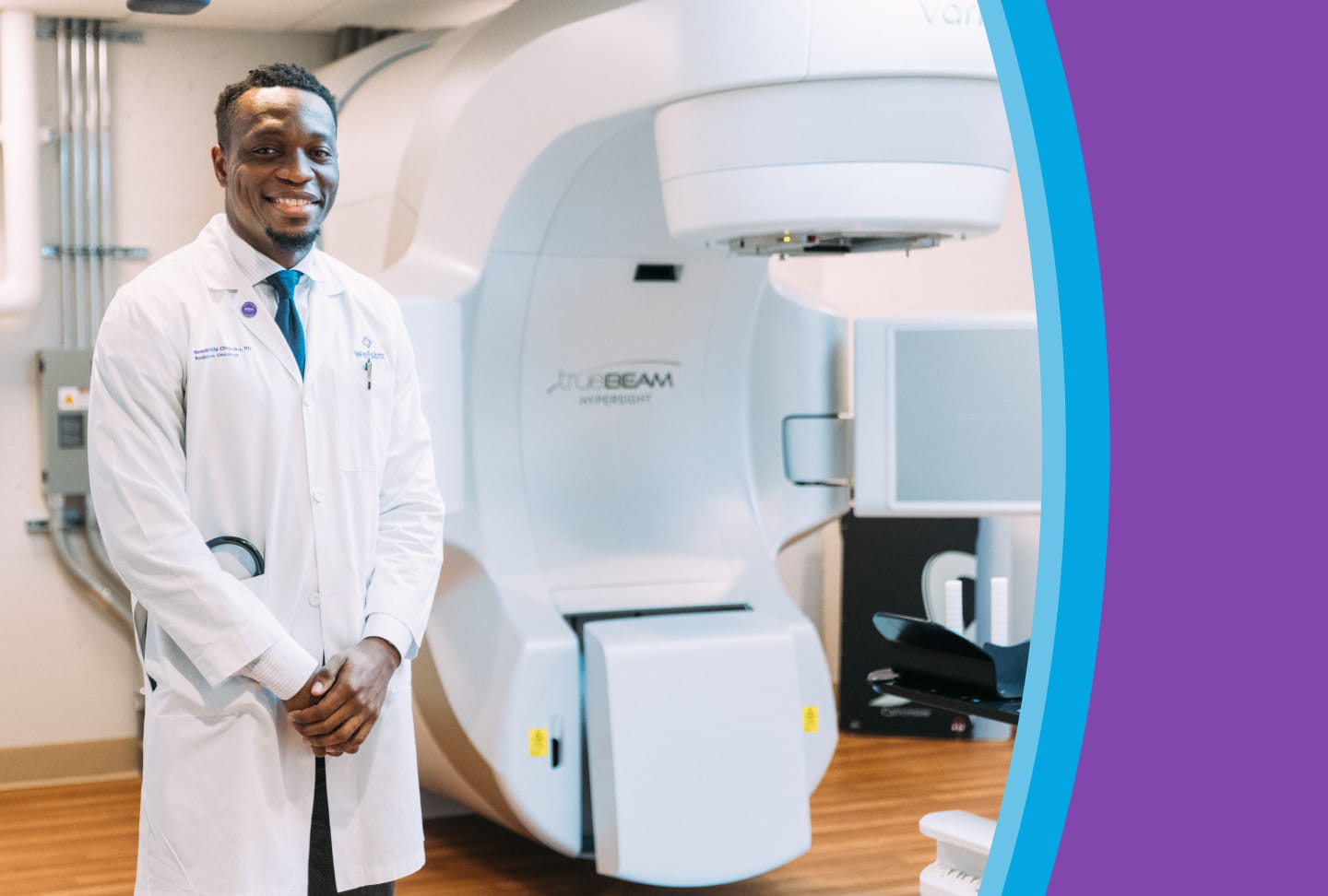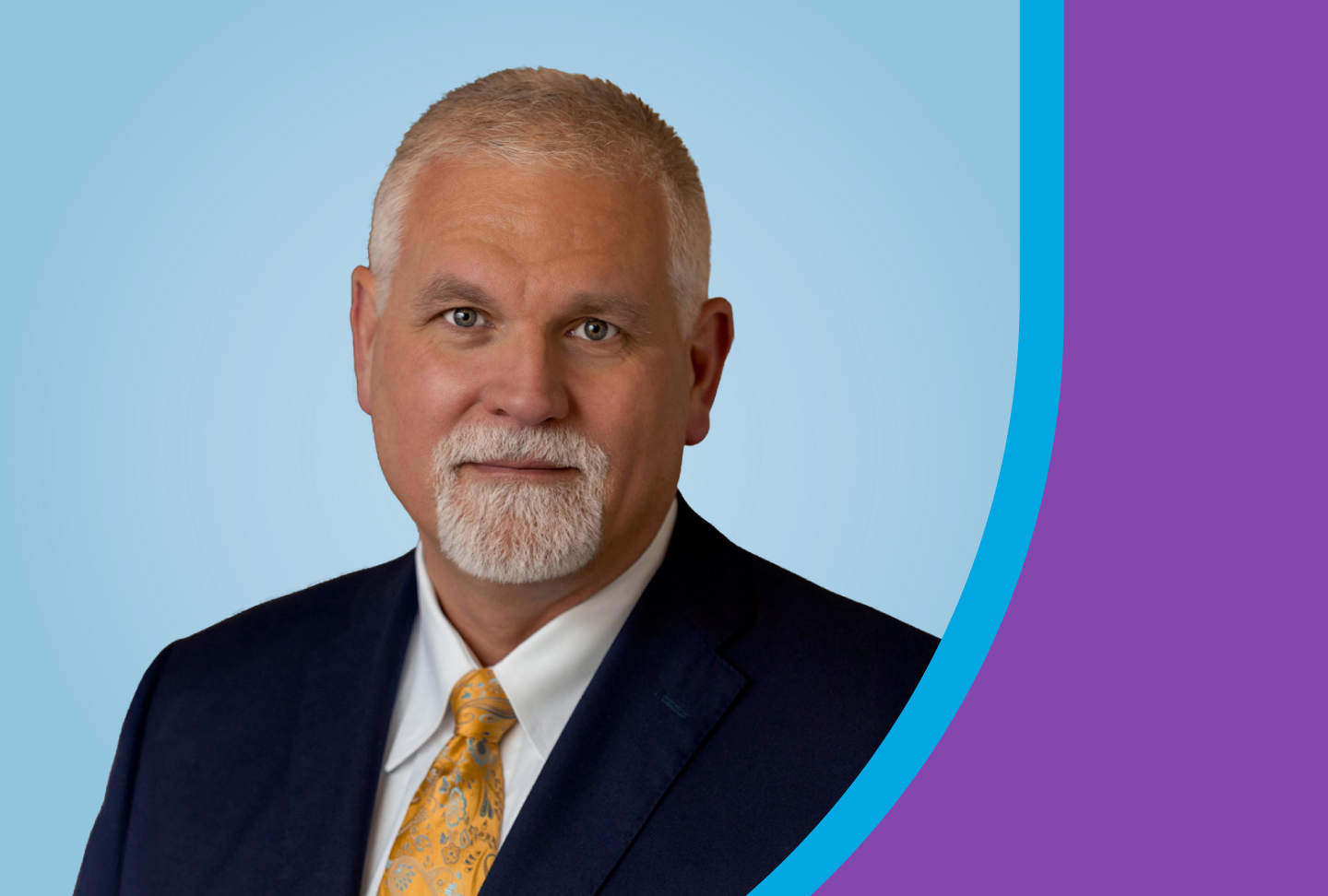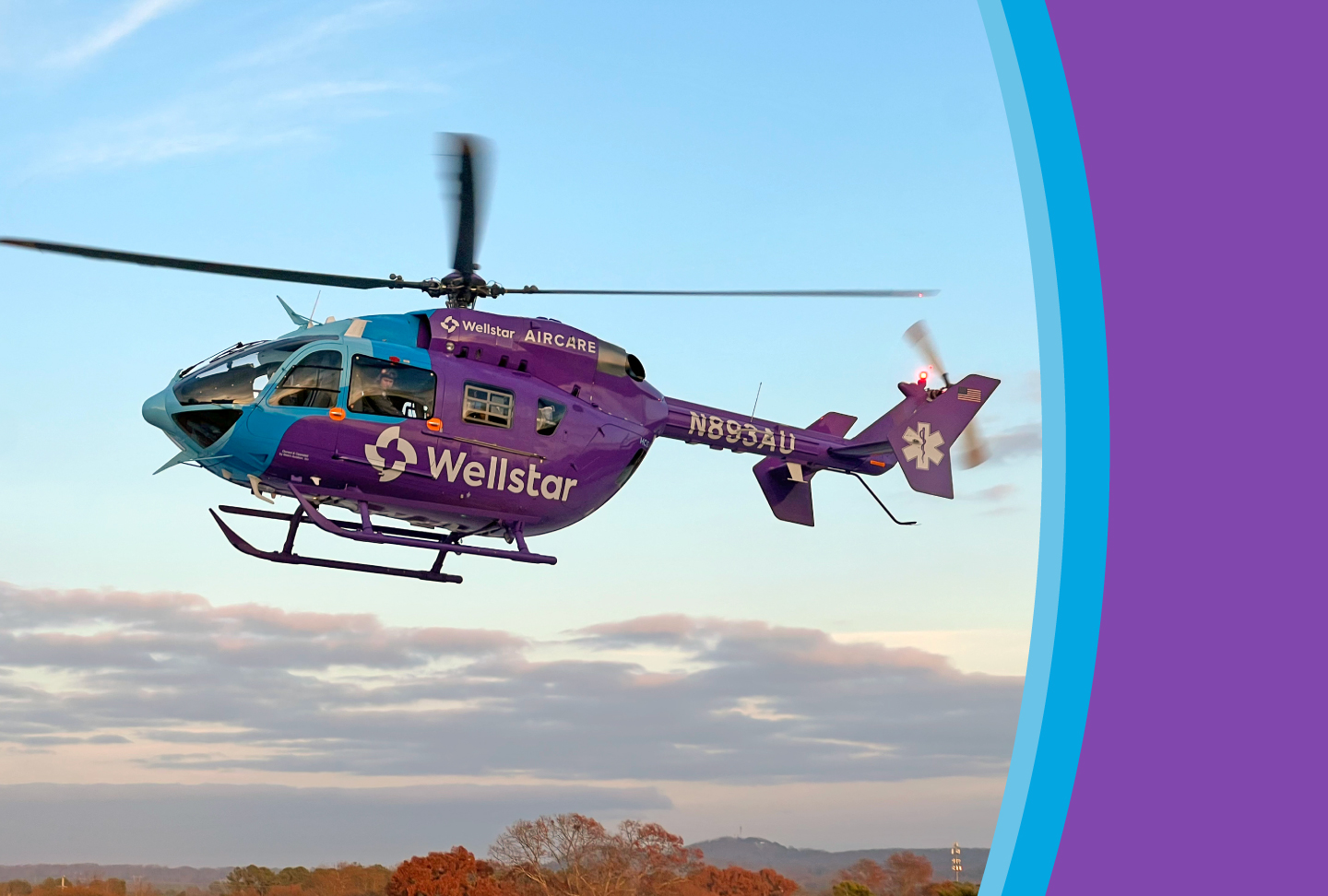New radiation technology and refreshed waiting and treatment areas are expanding world-class cancer treatment at
Wellstar Cobb Cancer Center.
Cancer care in forward motion
Wellstar Cobb Cancer Center recently installed its second TrueBeam linear accelerator, which treats various cancers, including brain, head and neck, prostate, breast, lung, skin and gastrointestinal tumors. With the linear accelerator, clinicians can adjust the size and shape of beams to a tumor’s shape and spare healthy tissue.
With the second linear accelerator, Wellstar Cobb can offer patients more flexible and convenient scheduling. “An additional linear accelerator can lead to timely treatment starts and shorter wait times,” said
Dr. Nasarachi Onyeuku,
a radiation oncologist at Wellstar. “It expands our ability to treat more patients with cutting-edge care, continuing our commitment to bringing world-class cancer treatment closer to home.”
In addition to state-of-the-art external beam radiotherapy, TrueBeam delivers precise, high-dose stereotactic body radiotherapy (SBRT) targeting tumors in the body. It also provides stereotactic radiosurgery (SRS) for brain or spine cancer treatment. Patients will typically receive one to five treatments.
Patient-centered care at Wellstar Cobb
Wellstar Cobb Cancer Center recently renovated its treatment areas, front desk and waiting room, making it more welcoming and comforting for patients and their families. Within the treatment areas, the suite where patients receive high-dose radiation brachytherapy, a targeted treatment that involves placing radioactive material directly into tumors or near them, also underwent renovations.
“The beautifully designed space enhances patient comfort, offering a calm, supportive environment,” Dr. Onyeuku said. “We’re currently treating breast, cervical, uterine and skin cancers, with plans to expand to other cancer types. It’s advanced, efficient care—delivered close to home and with compassion.”
Early detection and support services
Cancer care begins with prevention and early detection. Wellstar Cobb is home to a lung cancer STAT Clinic, where specialists collaborate to diagnose and begin treatment within as little as 14 days. According to research by the Cleveland Clinic, patients can spend up to eight weeks on average visiting different specialists before starting a treatment plan. Earlier treatment can lead to the best possible outcomes.
Patients at Wellstar Cobb receive support at every stage of their treatment. These services include:
- Emotional support from a social worker
- Lymphedema therapy for patients with excess fluid and swelling
- Meal planning with a dietitian
- Monthly support group
- Pain management
- Physical therapy
- Transportation assistance
“We have a superb team and state-of-the-art treatment here at Wellstar Cobb Cancer Center. And we’re backed by the resources of a nationally recognized health system,” Dr. Onyeuku said. “We are thrilled that our technology enhancements allow us to serve more people with exceptional cancer treatment.”
Learn more about cancer care in Cobb.




